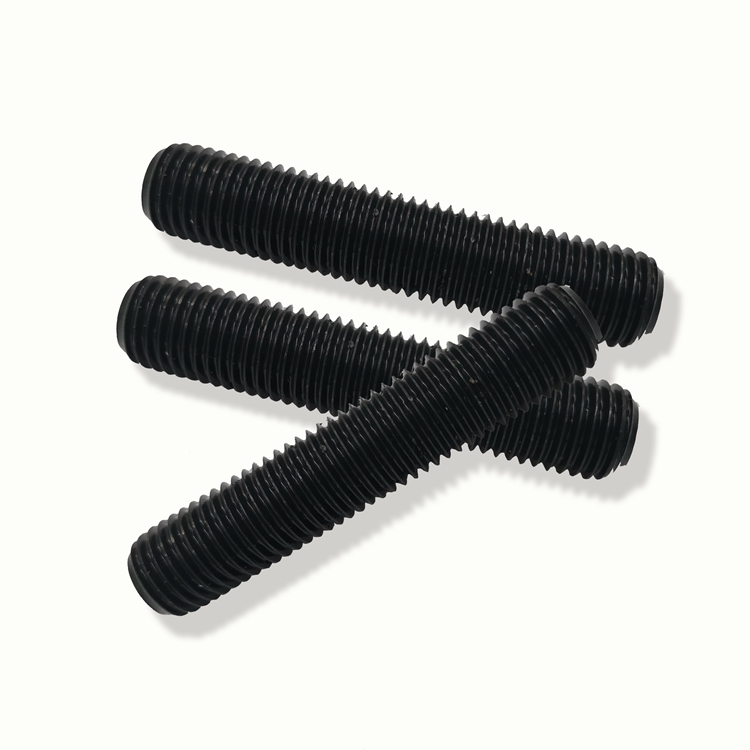unc 6-32 screws factories
Nov . 15, 2024 13:43 Back to list
unc 6-32 screws factories
The Role and Importance of UNC 206-32 Screws in Manufacturing
In the world of manufacturing, the choice of fasteners is paramount to the integrity and durability of constructed products. One type of fastener that stands out due to its standardized specifications is the UNC 206-32 screw. These screws, commonly used in various industrial applications, play a critical role in assembly and structural integrity. This article will delve into the specifics of UNC 206-32 screws, their manufacturing processes, and their applications across different industries.
What are UNC 206-32 Screws?
UNC stands for Unified National Coarse, a specification for screw threading that is widely adopted in the United States. The 206 refers to the screw's nominal diameter, which translates to approximately 1/4 inch, and -32 indicates that there are 32 threads per inch. This combination provides a robust grip and is designed for applications that require a higher holding power.
UNC 206-32 screws are designed for ease of use, compatibility, and reliability. They have a blunt end, which makes them particularly suitable for through-hole applications. The standardization of these screws means they can be easily sourced and replaced, minimizing downtime during manufacturing processes.
Manufacturing Process
The production of UNC 206-32 screws involves several critical steps, each of which demands precision. Typically, the manufacturing process begins with the selection of materials. High-quality steel is often chosen for its strength and durability. Common materials include carbon steel, stainless steel, and alloy steel, each providing various strengths and resistance to corrosion.
The screw-making process usually starts with wire drawing, where metal rods are drawn into narrower and longer wires. These wires are then cut into predetermined lengths suitable for the desired screw dimensions. The next stage involves heading, where the ends of the wires are formed into the desired head shape, usually either a hex or a slotted head.
unc 6-32 screws factories

Once the heads are formed, the screws undergo a threading process. This is where the UNC specification comes into play, as the screws are accurately threaded to match the 206-32 standard. Advanced machinery, including CNC lathes, is often employed to ensure precision, as even minor deviations can lead to compatibility issues during assembly.
After threading, the screws are typically heat-treated to enhance their strength and toughness. The final step often includes surface treatments such as galvanizing or black oxide finishes to improve corrosion resistance and reduce friction during assembly.
Applications of UNC 206-32 Screws
UNC 206-32 screws find applications in various industries due to their robust design and reliability. They are commonly used in automotive, aerospace, construction, and machinery industries. In the automotive sector, for instance, these screws are critical for securing components in engines and chassis, where durability is essential.
In the construction industry, UNC 206-32 screws are frequently used to secure plywood, frames, and other structures. Their strength allows them to bear heavy loads, making them suitable for both residential and commercial constructions. Additionally, manufacturers of heavy machinery often rely on these screws for assembly, ensuring that equipment remains stable under intense operating conditions.
Moreover, as industries continue to evolve towards more advanced technologies, the demand for high-quality fasteners like UNC 206-32 screws is on the rise. The need for lightweight yet strong materials in aerospace makes these screws a viable choice for various applications, from fuselage construction to engine assembly.
Conclusion
In summary, UNC 206-32 screws are a crucial element in the manufacturing landscape, offering reliability and strength across various applications. Their standardized dimensions ensure that they can be easily integrated into different systems, contributing to the efficiency of assembly processes. As industries demand higher performance from their materials, the importance of durable and reliable fasteners like UNC 206-32 screws will only continue to grow. By investing in high-quality manufacturing practices, factories can ensure that these screws meet the rigorous standards required in modern applications, ultimately leading to better products and enhanced safety standards.
Latest news
-
High-Quality Panel Stud Bolt Reliable Panel Stud Bolt Factory & Suppliers
NewsJul.08,2025
-
High-Precision Fine Thread Locknuts Manufacturer & Supplier Custom Solutions
NewsJul.08,2025
-
PH Imperial Stud Bolt – High Strength Fasteners from Leading Supplier & Factory
NewsJul.07,2025
-
High-Quality Allen Wrench Bolts Leading Factory, Company & Suppliers
NewsJul.07,2025
-
Wholesale Ball Stud Bolt - High Quality Supplier & Factory Price Reliable Wholesale Ball Stud Bolt Company
NewsJul.06,2025
-
High-Strength Alloy Bolts Manufacturer & Supplier Quality Alloy Fasteners Factory
NewsJul.06,2025
